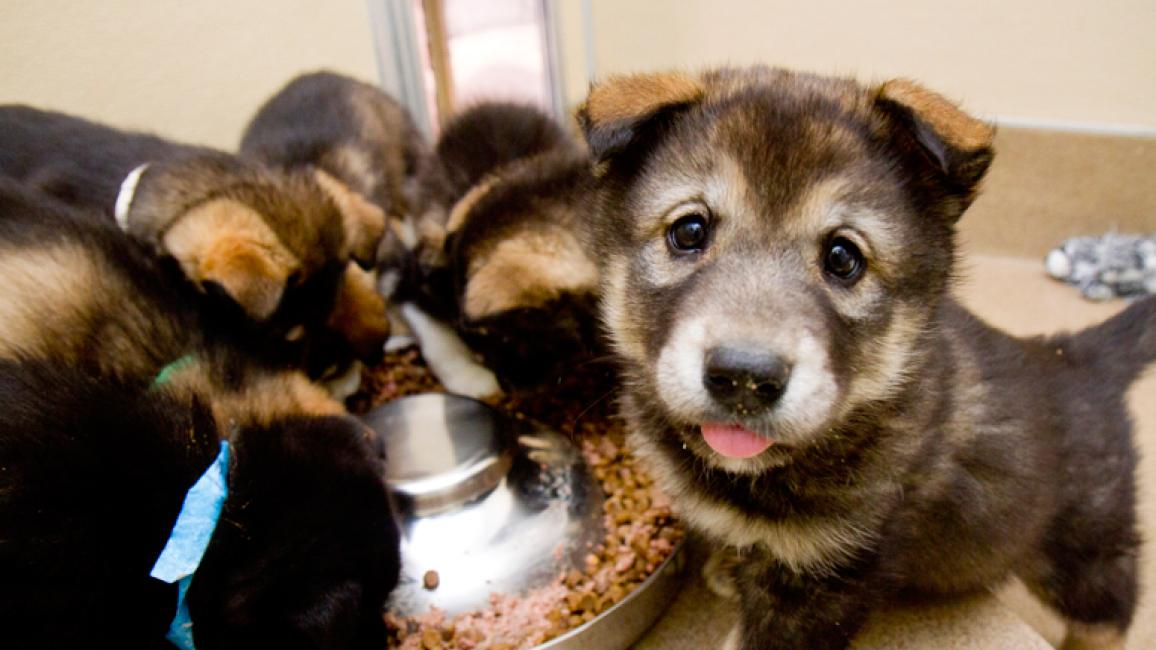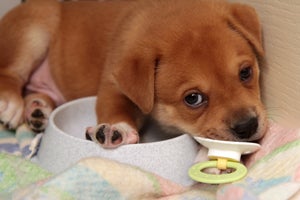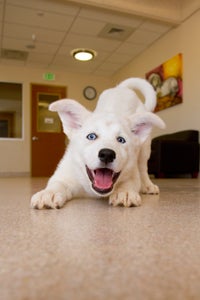Puppy potty training

 Bringing home a new puppy is probably one of the greatest joys a family can share. Of course, everyone wants the new family member to grow into a loyal, well-behaved companion. So, for obvious reasons, puppy potty training is at the top of every new puppy parent’s to-do list. Making sure it goes as smoothly as possible is up to you.
Bringing home a new puppy is probably one of the greatest joys a family can share. Of course, everyone wants the new family member to grow into a loyal, well-behaved companion. So, for obvious reasons, puppy potty training is at the top of every new puppy parent’s to-do list. Making sure it goes as smoothly as possible is up to you.
Puppies can be potty trained in a few months, a few weeks, or even a few days; each one is an individual. Ashley Atkinson, a dog trainer at Best Friends, says, “When you bring your puppy home, if both of you can start off on the right paw, it will make everything easier. You won't have any bad habits to break, and it will help both of you to establish a routine.”
Ashley, who’s also the primary puppy trainer at the Sanctuary, recommends having the proper equipment before bringing your new pup home. “A large dog crate, a baby gate, paper towels and an enzymatic cleaner are critical,” says Ashley. “You’ll want to be able to block access to unsupervised areas of the house and clean up messes thoroughly.”
Puppy house-training tips
Here are Ashley’s tips on potty training your puppy for best results:
- Supervise your puppy. To help you keep an eye on your puppy, put a leash on him or her and wrap it around your waist. This strategy allows you to go about your business without your puppy wandering off to get into trouble. When you can’t have the pup within eyesight, put him in the dog crate or use the baby gate to block him off in a safe area.
- Stick to a routine. “Dogs are creatures of habit and you want to give your puppy lots of chances to learn to go potty outside,” says Ashley. Here’s a schedule geared toward successful potty training: Right after you wake up in the morning, take the puppy outside. After he eats or drinks some water, go outside. When he wakes up from a nap, go outside. And finally, go outside just before bedtime.
 Don’t scold your puppy. “Punishing your puppy for having an ‘accident’ in the house can cause him to become fearful — the opposite of your training goals,” says Ashley. Plus, punishment is ineffective because there’s usually a span of time between the accident and the scolding, so the puppy has no idea why you are punishing him. All he knows is that you are mad about something.
Don’t scold your puppy. “Punishing your puppy for having an ‘accident’ in the house can cause him to become fearful — the opposite of your training goals,” says Ashley. Plus, punishment is ineffective because there’s usually a span of time between the accident and the scolding, so the puppy has no idea why you are punishing him. All he knows is that you are mad about something.- Use positive reinforcement. “Using positive reinforcement to teach your puppy where to go to the bathroom is the most effective way to potty train,” says Ashley. Accompany your puppy on potty breaks and when he starts to go to the bathroom, give him plenty of praise. Make going outside a good thing.
- Downplay accidents. “When a puppy has an accident in the house, it's not the puppy's mistake. It's ours,” says Ashley. Don’t make a big fuss if your puppy has an accident, because it can be construed as attention. And even negative attention can be something the puppy wants. If your puppy goes to the bathroom in the house, grab an enzymatic cleaner and a towel to clean it up.
Lots of patience, consistency and praise can help puppies figure out potty training quickly, and help them grow up into well-adjusted, happy dogs.
Learn more about puppy potty training.
Photos by Sarah Ause-Kichas